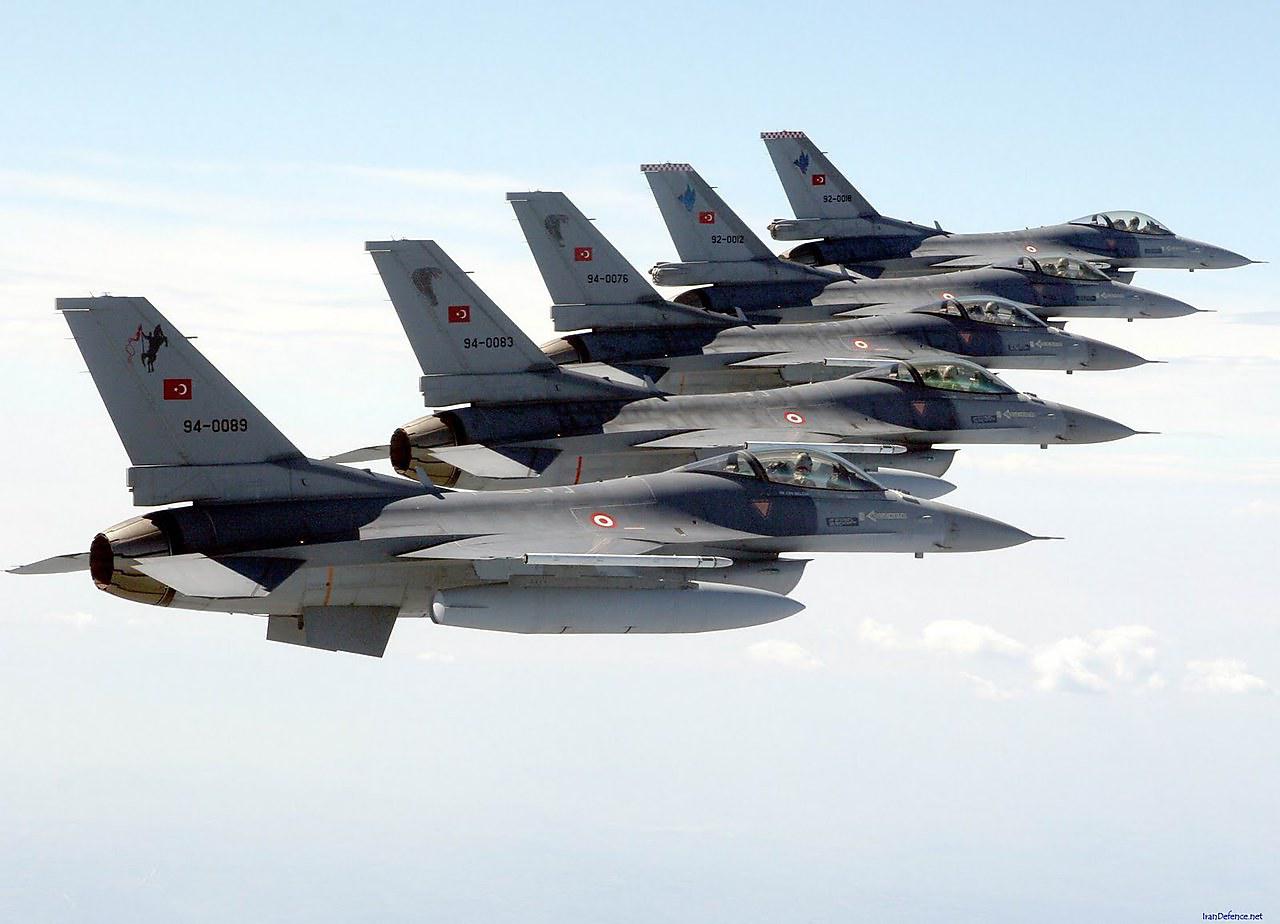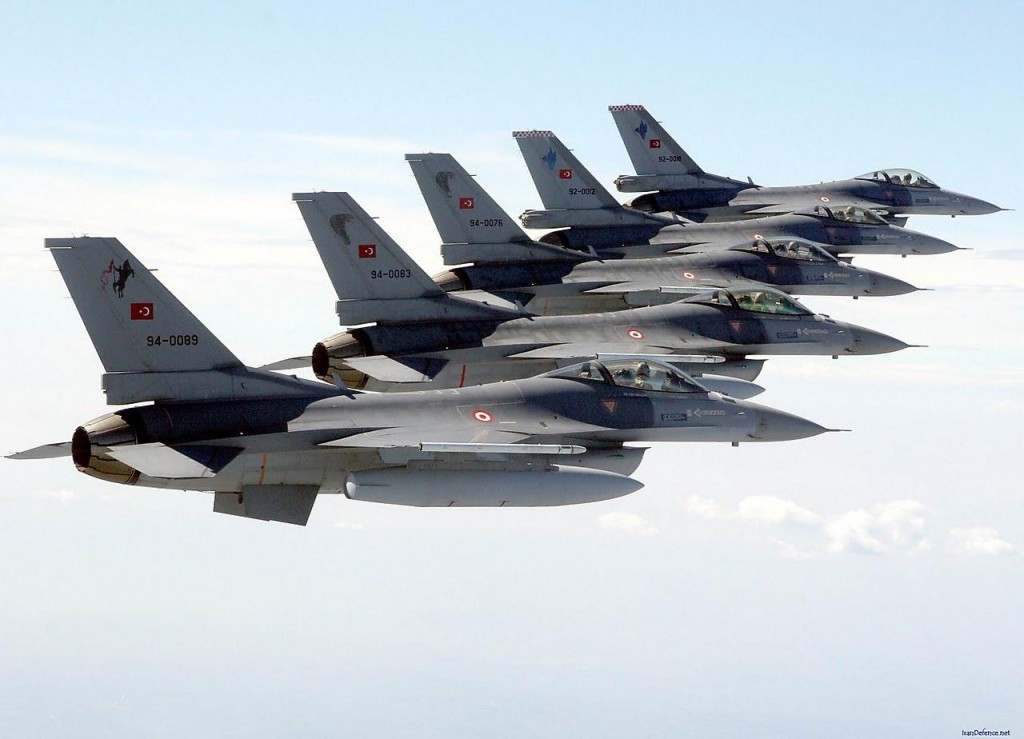On 23 July five ISIS fighters attacked a Turkish border patrol close to the observation post of the 1st Border Guard Regiment. The ISIS unit was trying to enter Turkish territory and was detected by the Turkish patrol.
A firefight then took place close to the village of Elbeyeli, east of the city of Kilis. During the firefight a Turkish sergeant was killed and two Turkish NCO’s were injured. After the incident four M-60A3TTS tanks of the 5th Armored Brigade and artillery units bombarded ISIS positions within Syrian territory.
Three vehicles of ISIS were destroyed and one ISIS fighter was killed by the Turkish bombardment.
According to unconfirmed sources, a Turkish Special Forces unit the “Bordo Bereliler” penetrated 5 km inside Syrian territory under the protection of Turkish F-16’s.
On 24 July, three Turkish F-16C Block40 fighter jets attacked three targets of ISIS in Syria using four guided bombs. The aircraft took off at 03:12. They attacked the two ISIS command and communication centers, close to the Syrian village of Havar without entering Syrian air space between 03:40 and 03:53. Then finally they returned back to their base at Diyarbakir at 04.24 in the morning.
The next evening, on 25 July, Turkish F-16C Block40 fighter jets attacked ISIS targets in Syria and five PKK camps in Iraq close to the borders of Turkey, marking the first aerial attack against PKK targets since 2011.
The PKK camps that were attacked are: Metina and Gare, close to the borders with Turkey in northwest Iraq; as well as Avastin, Zap and Basyan, close to the borders with Turkey in northeast Iraq. The F-16’s attacked at the same time as Turkish Army artillery pounded the PKK positions.
On the same day, the PKK said that there was no longer any ceasefire between the Turkish Government and the PKK.
Another aerial attack against PKK targets in Iraq was conducted by the Turkish Air Force during the night of 26 July. In retaliation PKK fighters killed two Turkish soldiers and wounded four more in an ambush close to the city of Diyarbakir in southeast Turkey.
Turkey has been bolstering its military presence along the Syrian borders since the beginning of July. Convoys of artillery, tanks, at least 400 armored personnel carriers (protected against IEDs by signal jammers), missile batteries and supply vehicles belonging to armored and motorized units have been positioned along the Syrian borders during the previous weeks.
Furthermore, the 2nd Commando Brigade from Bolu, the 1st Commando Brigade from Kayseri, a Battalion belonging to the 4th Commando Brigade from Tunceli and men of the “Bordo Bereliler” Special Forces unit have been deployed close to the Syrian borders. According to estimates, Turkish Armed Forces have positioned 54,000 troops along the Syrian borders.
The main target of Turkey is the establishment of a 30-40 km wide and 90-110 km long buffer zone in northern Syria between the two Kurdish controlled areas. The Turkish buffer zone will probably be established between the west bank of the river Euphrates and east of the city of A’ Zaz. This area is controlled mostly by forces of ISIS and partly by the forces of the Free Syrian Army.
As Turkish Prime Minister Ahmet Davutoglou said, his country will not allow the establishment of a Kurdish state on its borders with Syria.
Kurdish People’s Protection Units (YPG) created by the Kurdish Supreme Committee in order to protect Kurdish inhabited areas in Syria, control a land strip along the entire Turkish-Syria border, from the city of Al-Malikiyah until the village of Shuhukh on the east bank of the river Euphrates.
Furthermore, Kurdish People’s Protection Units control a small land pocket around the city of Afrin, west of the river Euphrates.
Each one of these three areas in northern and northeastern Syria make up a Kurdish Canton. The non-contiguous Kurdish cantons (from east to west) of Cizîrê, Kobani and Afrin, make up Rojava, a de facto autonomous region not recognized by the Syrian government, with a total population of 4.6 million people.
On Sunday 27 July, Turkey called for an extraordinary council meeting of NATO. This will take place on Tuesday 28 July and will discuss Turkey’s operations against both the PKK and ISIS. Turkey plans to inform its allies of the measures it is taking following last week’s ISIS suicide bombing near Turkey’s border with Syria that left 32 Kurdish origin people dead, and an ISIS attack on Turkish forces that killed a soldier.


